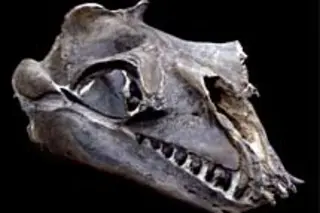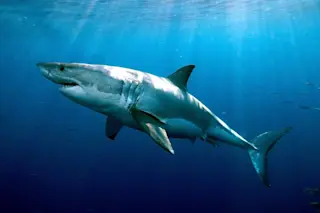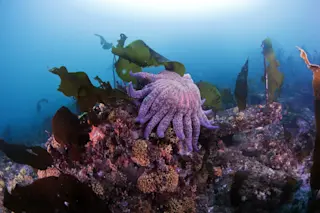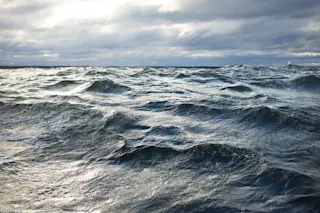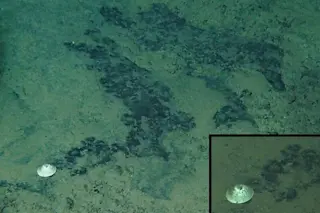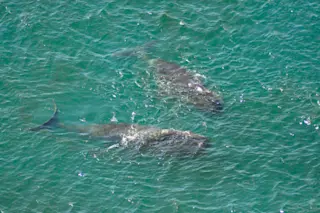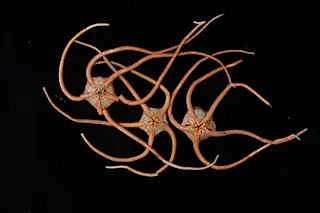Baleen whales are gentle giants, roaming the oceans like enormous cows. Despite their massive size, humpbacks, blue whales, and their brethren do harm to no other sea life except the plankton and krill they suck in through their screenlike baleen filters. But an astounding fossil discovery is offering scientists a glimpse into the distant, ferocious past of today's mild-mannered mysticetes.
Staumn Hunder, an Australian surfer, discovered the fossil on a beach in the late 1990s and had the presence of mind to turn it over to a Melbourne museum. When Monash University whale researcher Erich Fitzgerald first viewed the rock-encased fossil in 2001, he knew he'd come upon something utterly novel. It took more than two years to strip the stone from the whale skull, and when he did, "there before me was what looked like an entirely new branch on the evolutionary tree of whales."
All living whales belong ...


